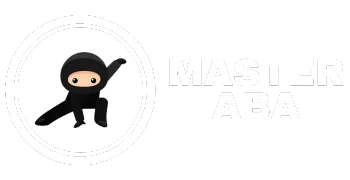2 General Type CEUs
Enhancing Interactions: How to Use the ACT Matrix to Build Partnerships with Parents and Staff
Create connections and achieve better results!
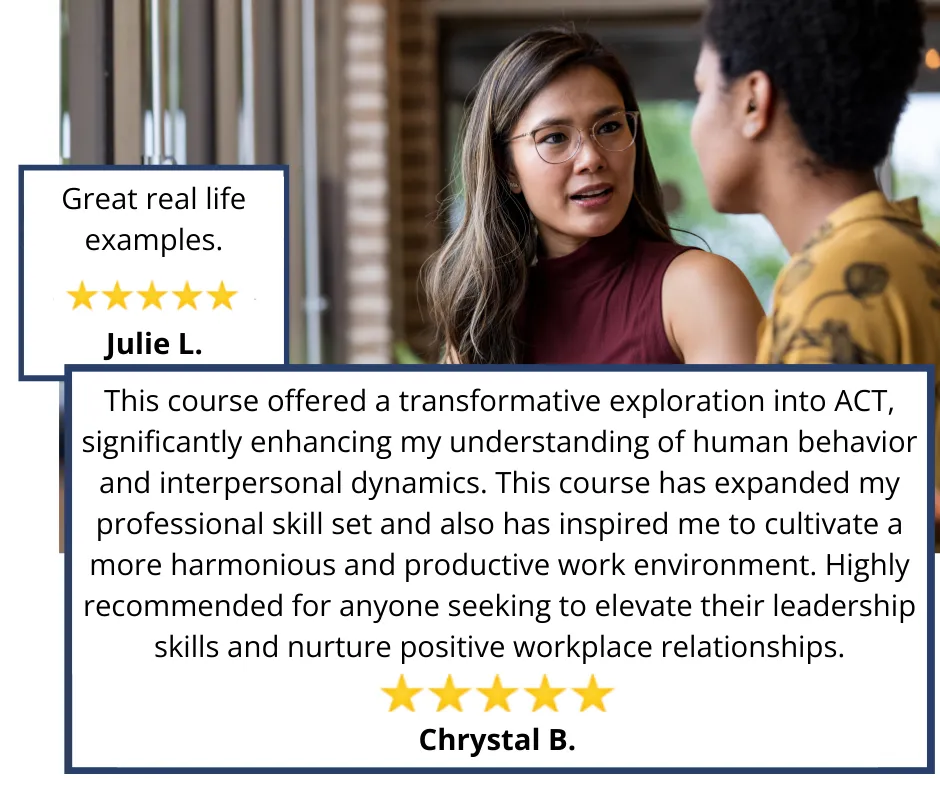

Instructor: Amelia Dalphonse, MA, BCBA
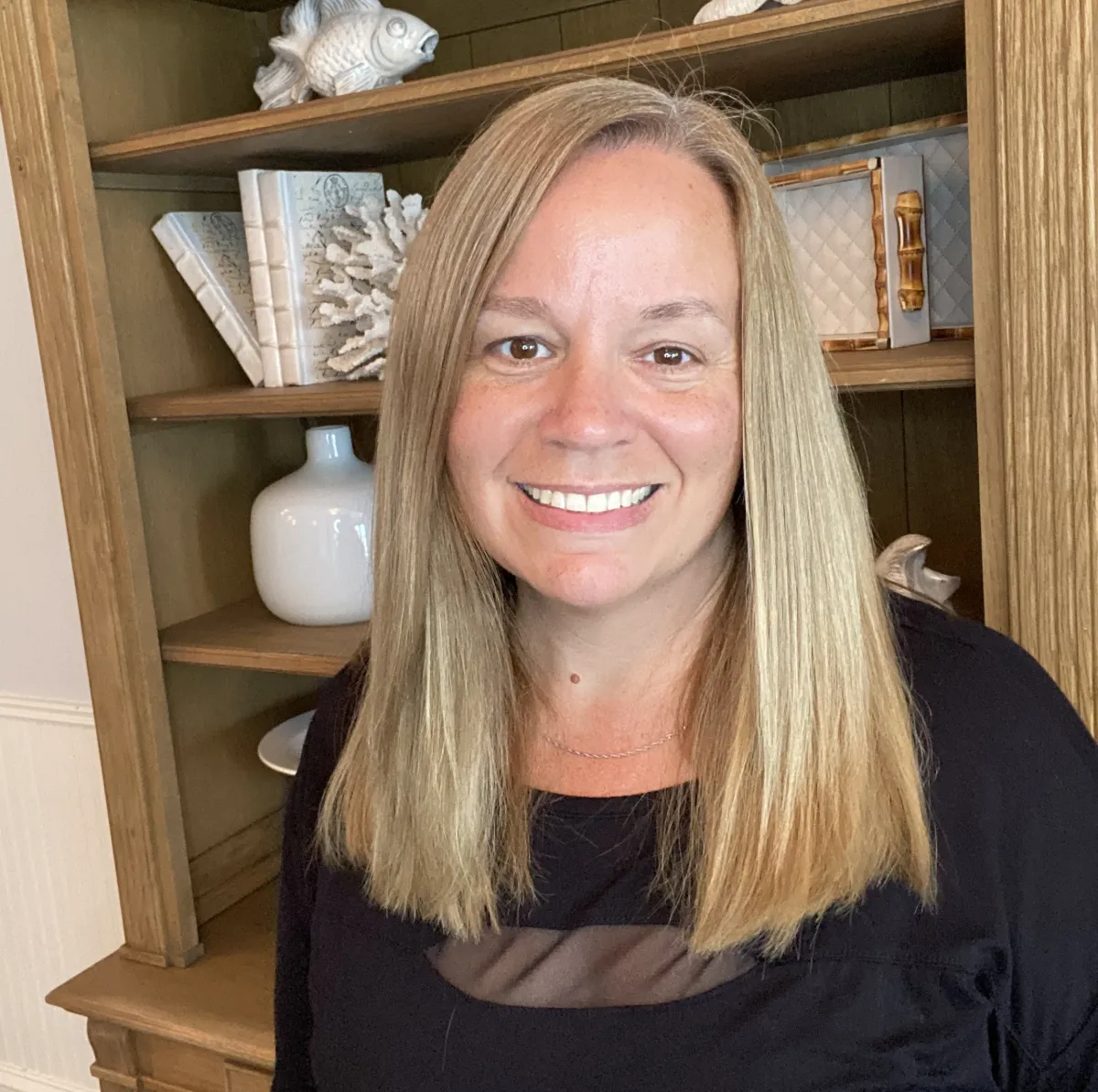
Amelia Dalphonse, MA, BCBA
Why is Enhancing Interactions essential to your career as a BCBA®?
I’m sharing my framework with you because I know what it feels like when you can’t reach a parent who desperately needs help. It was crushing when Amanda, a defeated mother of a 10-year-old boy who had been diagnosed with Prader Willi Syndrome, scrawled “give up” on the calendar a date 3 weeks from the day of our meeting,
I knew I had to find a way to get her to start using the strategies I’d been trying to teach her for months. But how?
Until then, she clearly understood the procedures I taught her and even promised to follow through at the end of each training session. Yet she never did. I went home and thought about what I could do differently. I changed my approach and started looking at the situation from her perspective.
By doing so, in less than the 21 days I’d promised her, I was able to uncover what was standing in her way so that she could be truly motivated to help her son. By using the strategies I share in the Partnership Language 5-Day Challenge I learned that she believed her son’s behavior was the result of his disability – and that therefore none of the interventions I taught her would make a difference.
Once I understood where she was coming from, one simple statement changed everything for her.
I told her, “I understand that he has a disability, but his behavior is not his disability. It is the result of the conditions that surround his behavior. If the conditions stay the same, so does the behavior. If you change the conditions, you change the behavior.”

At that moment she finally understood what months of “training” never achieved. She began using the strategies I had been teaching her. It wasn’t easy, but she stuck with it. One day we sat together and she said, “I finally enjoyed spending time with my son,” and broke down in tears.
This system works.
What you will learn:

Enhance Collaboration
Build strong partnerships with parents and staff.

Overcome Obstacles
Address barriers to parent training and staff supervision.

Increase Buy-In
Inspire parents and staff to learn and implement ABA strategies.

Improve Training
Transform training into collaborative partnerships.

Motivate Change
Uncover beliefs and values that influence behavior.

Maximize Outcomes
Promote consistent implementation of strategies at home and in the classroom.
What’s Included with Enhancing Interactions?

3 lessons with actionable steps you can use with parents right from the start
2 Learning Type CEUs
Tools to establish connection with parents and staff
Identify obstacles to parent training and supervision, then implement strategies to overcome them
Use language that creates connection instead of separation
Create motivation to not only learn ABA strategies but also implement them at home
Quizzes to test your understandings
The Problem with Parent Training

You know that getting parents to use ABA strategies at home is the most effective way to make serious gains with your clients. But because parents are already overwhelmed, the reality is grim:
Many parents simply attend ABA parent training sessions out of obligation without actually changing what they do outside of sessions.
Even those who do use some of the strategies, this change is often short-lived.
Meaning your clients don’t receive the intended benefit of parent training.
But that’s not the end of it—the problem’s actually worse than that!
You spend endless hours scheduling and rescheduling parent training sessions, trying to come up with strategies that will get them to follow through.
Most parents don’t see how they can use the strategies you suggest, so it’s a waste of your time and resources to continue as you are.
Plus, you’re billing insurance companies for a service that’s not generally effective.

This is why I stopped parent training – and started partnering with parents instead!
Trusted ACE Instructors Approved through the BACB
Quality Assurance You Can Trust: All of our instructors are certified Authorized Continuing Education (ACE) providers through the Behavior Analyst Certification Board (BACB). This ensures that our CEU courses meet the rigorous standards set by the BACB and qualify for CEU credits towards maintaining your BCBAs’® certifications.
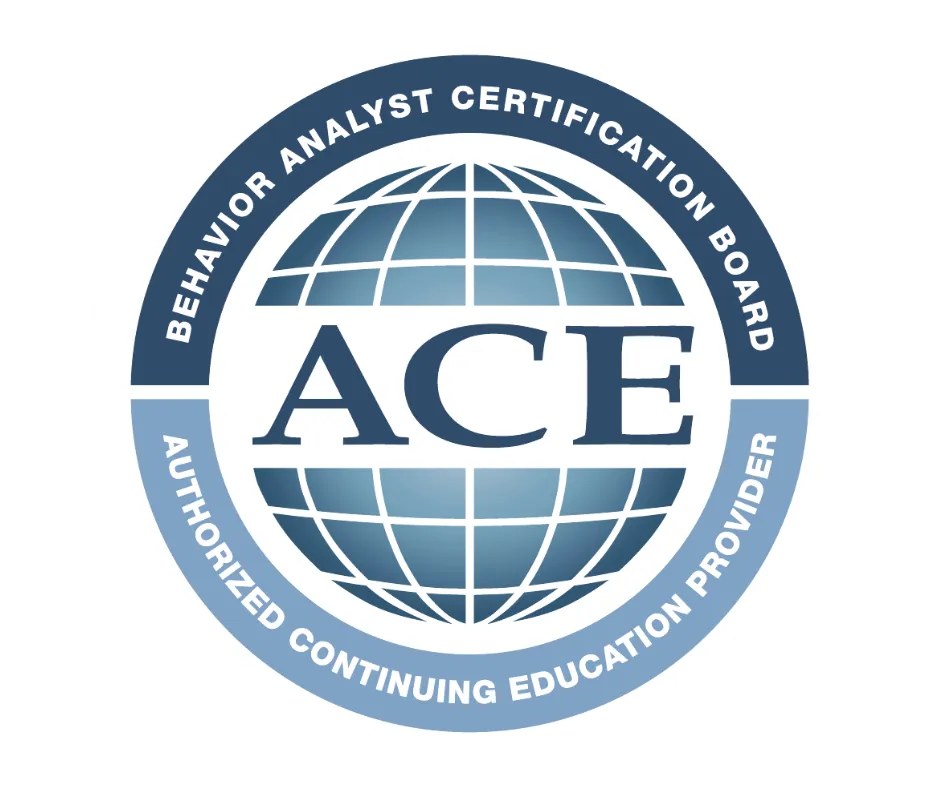
See what people are saying about Enhancing Interactions
This course offered a transformative exploration into Acceptance and Commitment Therapy (ACT), significantly enhancing my understanding of human behavior and interpersonal dynamics. Through insightful guidance, I learned to apply ACT principles to strengthen relationships with staff, fostering better communication, empathy, and collaboration. This course has expanded my professional skill set and also has inspired me to cultivate a more harmonious and productive work environment. Highly recommended for anyone seeking to elevate their leadership skills and nurture positive workplace relationships.

Jessica S.
This course was GREAT! Not only do you experience the ACT Matrix but also get to "see" it put together with numerous examples showing how it helps you help families.

Lisa B.
Great real life examples.

Julie L.
Act now, and you can get Enhancing Interactions – plus get these exclusive bonuses!
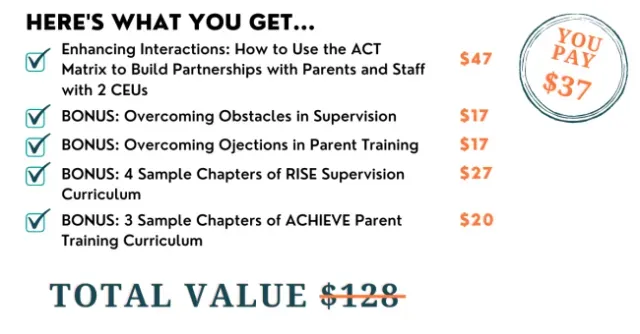

Meet the Instructor

Amelia Dalphonse, MA, BCBA
Amelia Dalphonse, MA, BCBA, co-founded Master ABA with her twin sister, Dianna Kelly, bringing over 13 years of expertise in Applied Behavior Analysis (ABA). Passionate about prioritizing client needs, Amelia earned a Master’s degree in ABA and became a Board Certified Behavior Analyst (BCBA).
At Master ABA, Amelia and Dianna lead with innovation, emphasizing client-centered care to drive meaningful change. As an ACE provider, they’ve established the institution as a hub for progressive ABA practices, inspiring others to adopt compassionate and ethical approaches.
Through her role at Master ABA, Amelia advocates for advancing the ABA field with empathy and integrity. She stays abreast of the latest research, continuously seeking opportunities for professional growth.
